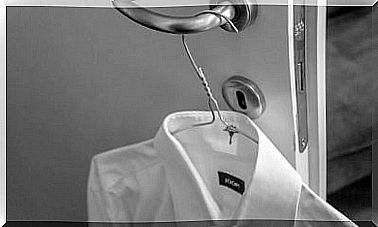What Is Hyperventilation Syndrome And How Is It Treated?
Hyperventilation syndrome is a respiratory phenomenon characterized by rapid or deep breathing . It can manifest itself in people who suffer from panic attacks, but these are not the only cause.
When this condition occurs, as the respiratory rate is greatly increased, the person begins to breathe only through the lungs, quickly and shortly, instead of taking slow and deep breaths using the diaphragm.
It is normal that hyperventilation triggers a series of side effects that can be quite unpleasant and that we will see in more detail throughout this article.
Beyond the latter, anyone who hyperventilates for more than a couple of minutes should seek medical attention as soon as possible to avoid complications.
How do we breathe?

Breathing is essential for the functioning of the body. With it, we are able to supply oxygen to all the cells of the body. In addition, all the nutrients that we ingest when we eat and drink are transformed into energy through biochemical processes that require the presence of oxygen.
When we breathe in, we fill our lungs with oxygen-laden air (O2). This molecule diffuses it to the capillaries that are at the end of the bronchioles, so that it is transported to the heart.
Once there, the heart is in charge of pumping oxygenated blood throughout the body so that it can be used by all cells. O2, as we have said, will help transform nutrients into energy through biochemical reactions, which produce carbon dioxide gas (CO2) as a waste substance.
Causes of hyperventilation syndrome
Emotional problems are one of the main causes why a person can begin to hyperventilate; It occurs, for example, during a panic attack. It can also be triggered by a medical problem, such as bleeding or infection.
Specialized personnel must determine the cause of hyperventilation; This picture must be attended to as soon as possible, in order to avoid complications.
In short, within the emotional causes that can cause hyperventilation syndrome, we can mention anxiety, panic attacks or any state of high nervousness.
On the other hand, we can highlight the following medical causes responsible for the appearance of this syndrome:
- Major bleeding.
- Heart failure or heart attack.
- Certain medications.
- Certain infections, such as pneumonia.
- Lung diseases, such as asthma or COPD.
What happens if you are undergoing an episode of hyperventilation?
When you have an episode of hyperventilation, the balance between O2 and CO2 is broken. This is because oxygen levels increase and CO2 levels decrease, which directly affects the levels of both gases in the blood.
When this imbalance occurs, two things happen. On the one hand, the decrease in CO2 levels is detected by the brain, which tries to solve the situation as soon as possible. The quickest way to do this is by reducing the urge to breathe.
Thus, a considerable decrease in the amounts of inspired oxygen and expired CO2 is achieved. Therefore, when we are hyperventilating, the body tries to stop breathing at the rate at which we were doing it involuntarily.
However, in this situation, the individual consciously makes an effort to breathe more, which translates into the imbalance between the gases that we have explained.
On the other hand, decreases in CO2 levels in the blood produce an alteration in the pH value of the blood, which becomes alkaline. As a consequence, the patient may feel any of these symptoms:
- Tingle.
- Dizziness
- Feeling hot or cold
- Muscular weakness.
- Palpitations
In addition to the symptoms described, you may also experience a feeling of not being able to hold your breath, dry mouth, trouble sleeping, or twitching of the hands or feet, among others.
Treatment of hyperventilation syndrome

To carry out treatment for a person who is hyperventilating for the first time, it is necessary to know the triggering cause; With this, it will be possible to differentiate between an emotional or a medical cause.
In the supposed case in which the doctor diagnoses hyperventilation syndrome due to an emotional cause, such as anxiety, a series of guidelines can be recommended. First, try to get your breathing back to a regular rhythm; Here, it is helpful to employ some breathing technique.
The patient should try to breathe more slowly and less shallowly, in order to increase the amount of CO2 in the lungs.
One maneuver that can be done is to breathe by placing a plastic bag over the nose and mouth, to breathe in part of the carbon dioxide; This should be done with caution, as CO2 levels can get too high.
Finally, hyperventilation syndrome has a medical cause as its origin, apart from the previous measures, the triggering health problem must be treated as soon as possible; of course, the doctor will be the one who indicates the steps to follow.









